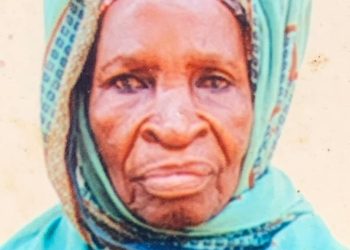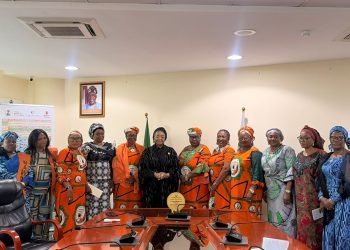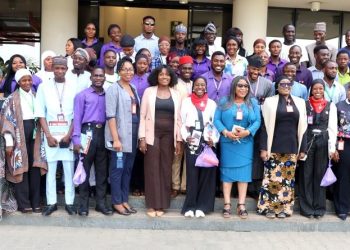By Nkechi Eze
The Federal Government has expressed confidence that the recent amendment of the National Drug Law Enforcement Agency (NDLEA) Act by the National Assembly will significantly strengthen Nigeria’s fight against drug abuse and illicit trafficking once signed into law by President Bola Ahmed Tinubu.
An official signed statement by the Agency’s spokesperson Femi BabaFemi disclosed that the assurance was given during the opening ceremony of the Inter-Ministerial Committee on Drug Control (IMC) meeting held in Abuja on Wednesday, 28 May 2025.
Delivering the keynote address, the Minister of Justice and Attorney General of the Federation, Prince Lateef Fagbemi, SAN, said the amendment will enhance the NDLEA’s operational capabilities and legal backing in combating the drug menace. Represented by the Director of Public Prosecution of the Federation, Mr. Mohammed Abubakar, the minister lauded the agency’s recent strides in arrests, seizures, convictions, and rehabilitation efforts under the War Against Drug Abuse (WADA) initiative.
“In the past four years, we have witnessed unprecedented efforts by the NDLEA, not only in enforcement but in community-based advocacy and rehabilitation. These achievements give hope to what was once a bleak situation,” he said.
He further revealed that the Federal Ministry of Justice has worked closely with the NDLEA to ensure that the country’s legal architecture aligns with the agency’s objectives. “The amendment of the NDLEA Act will substantially boost its institutional capacity. Additionally, the Ministry is providing support in the area of proceeds of crime management to help dismantle the financial networks of drug traffickers,” he stated.
The Minister also praised the work of the Inter-Ministerial Committee, noting its role in unifying the efforts of various government agencies and stakeholders toward a cohesive national drug control strategy. “Let us leave this meeting with renewed commitment to protecting our youth, securing our communities, and building a healthier, safer Nigeria,” he urged.
In his welcome address, the Chairman and Chief Executive Officer of the NDLEA, Brigadier General Mohamed Buba Marwa (Retired), reaffirmed the agency’s determination to push forward despite funding constraints that have affected the full implementation of the National Drug Control Master Plan (NDCMP 2021–2025).
“We remain resolute, drawing strength from our collective vision and shared responsibility. The recent amendment to the NDLEA Act is a major development that will further empower the agency to reduce drug supply and improve enforcement outcomes,” he said.
Marwa shared a detailed overview of the agency’s performance under the current National Action Plan, citing the arrest of 31,334 drug offenders, 6,839 convictions, and the seizure of over 4.3 million kilograms of assorted illicit drugs in 2023 and 2024 alone. He also reported the destruction of over 426 hectares of cannabis farms and the provision of counselling and rehabilitation services to 19,033 individuals.
Speaking on the agency’s outreach efforts, he highlighted the success of the WADA campaign in raising awareness at the grassroots level. “This has fostered a sense of shared ownership and collective commitment in the national effort to curb substance abuse, trafficking, and proliferation,” he said.
Also addressing the gathering, the Country Representative of the United Nations Office on Drugs and Crime (UNODC), Cheikh Ousmane Toure represented by Dr. Akani Ibanga described Nigeria’s drug situation as both a public health and security emergency.
He expressed concern over statistics indicating that Nigeria contributes approximately 7.5 percent to the global figure of individuals suffering from drug use disorder, estimating over three million affected persons in the country.
“As we gather, we must be guided by data. The urgency of today’s mission cannot be overstated,” he stated, urging full implementation of the NDCMP’s final phase to address the nation’s pressing drug challenges.















